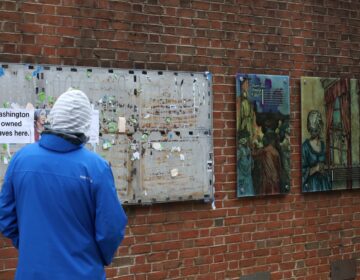Examining Ilhan Omar
I watched with interest as Democrats targeted freshman Minnesota Congresswoman Ilhan Omar—a Muslim who came to America as a Somalian refugee—as the new face of anti-Semitism.

Rep. Ilhan Omar, D-Minn., sits with fellow Democrats on the House Education and Labor Committee during a bill markup, on Capitol Hill in Washington, Wednesday, March 6, 2019. (AP Photo/J. Scott Applewhite)
I watched with interest as Democrats targeted freshman Minnesota Congresswoman Ilhan Omar—a Muslim who came to America as a Somalian refugee—as the new face of anti-Semitism in America.
To be sure, Omar, a frequent critic of Israeli policy and influence, has been offensive to some. Omar apologized after saying U.S. politicians support the American Israel Public Affairs Committee (AIPAC) because it’s “all about the Benjamins.” Later, at a town hall meeting, she questioned “the political influence in this country that says it is okay for people to push for allegiance to a foreign country.”
Critics said Omar’s statement was reflective of an anti-Semitic trope, which says Jews have divided loyalties between America and Israel. Democrats, in a frantic rush to distance themselves from Omar’s comments, proposed a resolution that on its surface condemned anti-Semitism, but in reality was a personal rebuke of Omar. They later passed a watered down version of the resolution that denounced all forms of hate. Most Republicans gleefully supported the rebuke, and in my view they did so because it painted Omar as the symbol and substance of hate in America.
But in a country where the President ran on a platform that targeted brown immigrants, where the vast majority of hate crimes are carried out by white men born in America, where the victims of such crimes are overwhelmingly people of color, how did a black Muslim immigrant suddenly become the face of bigotry?
I believe Omar’s journey from freshman Congresswoman to political football was driven not only by her own criticism of Israel and American politics. It was also driven by the Democratic Party’s desire to be the arbiter of political correctness.
Certainly, anti-Semitism is wrong. No one should be hated or harmed because of their religion. But when we are no longer free to question financial influence in politics, and no longer free to critically think about international connections, we are no longer Americans. We are automatons.
Here is the reality. Ilhan Omar—a hijab-wearing black Muslim woman—is more likely than most Americans to be a victim of a hate crime. According to the Council on American Islamic Relations, anti-Muslim bias incidents and hate crimes were up 83 and 21 percent respectively in the second quarter of 2018. And Muslims continue to be targets of hate in America.
That’s why portraying Ilhan Omar as the face of hate is so shortsighted. Not just because she never expressed hate toward anyone or called for others to engage in hate, but also because while Omar is singled out, the real purveyors of hate are free to carry on with their activities.
A self-proclaimed racist like Dylann Roof can still walk into an AME church and kill nine blacks at a bible study. An avowed anti-Semite like alleged murderer Robert Bowers can still walk into a Pittsburgh synagogue and kill 11 Jews as they worship. A white supremacist like James Fields can still drive through a crowd in Charlottesville and kill a woman protesting racism. The president of the United States can still sit in the White House and craft his immigration agenda around building walls to keep out brown people.
I don’t see any resolutions against them. And I’ve never seen resolutions calling out any member of Congress in the same way they called out Omar. There wasn’t any resolution when Congressman Steve King made statements supporting white supremacy. There wasn’t any resolution when King refused to apologize. And there won’t be any resolution because Republicans don’t care what King says as long as he votes like they tell him to.
Certainly, Democrats should not sit idly by while bigotry takes place. But they also shouldn’t confuse words with the kinds of violent actions that endanger us all.
If we have any hope of changing the course of racism and prejudice in America, Democrats and Republicans must learn to put aside symbolic gestures and do the real work to fight racism and anti-Semitism. If they don’t, the purveyors of hate will continue to hurt people in America.
Resolutions don’t change that a bit.
WHYY is your source for fact-based, in-depth journalism and information. As a nonprofit organization, we rely on financial support from readers like you. Please give today.





